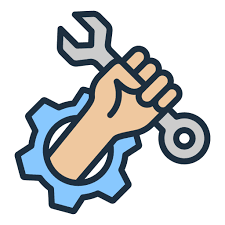
Introduction
The Bachelor of Engineering in Mechanical Engineering is a diverse field focusing on the design, analysis, and manufacturing of mechanical systems. It prepares students for various challenges in engineering through a curriculum that balances theoretical knowledge and practical skills essential for industry.
Study of Mechanics
- Understanding the fundamental principles of mechanics.
- Exploring statics, dynamics, fluid mechanics, and thermodynamics.
- Applying mathematical and scientific concepts to analyze systems.
- Designing efficient energy conversion systems.
- Utilizing simulation tools for performance assessment.
- Studying physical body behavior under various forces.
Design Process
- Utilizing CAD software for component modeling.
- Conducting simulations to optimize designs.
- Implementing FEA and CFD techniques for prediction.
- Reducing prototype costs through virtual testing.
- Ensuring designs meet safety and efficiency standards.
- Collaborating in interdisciplinary teams for better outcomes.
Manufacturing Techniques
- Choosing appropriate materials for production.
- Exploring traditional and modern manufacturing methods.
- Implementing additive manufacturing techniques like 3D printing.
- Ensuring cost-effective and efficient production processes.
- Staying updated on advancements in manufacturing technology.
- Understanding the impacts of production methods on the environment.
Maintenance and Reliability
- Developing strategies for equipment maintenance.
- Implementing predictive maintenance techniques.
- Analyzing failure to enhance reliability.
- Mitigating risks and extending equipment lifespan.
- Optimizing productivity through effective maintenance.
- Collaborating with teams for comprehensive maintenance strategies.
Career Opportunities
- Pursuing roles in automotive, aerospace, and manufacturing.
- Engaging in research and development sectors.
- Exploring opportunities in renewable energy systems.
- Designing medical devices and consumer electronics.
- Contributing to the field of robotics and automation.
- Advancing in agribusiness and infrastructure development.
Skills and Collaboration
- Developing strong analytical and problem-solving skills.
- Collaborating with multidisciplinary teams.
- Effective communication of ideas and solutions.
- Adapting to fast-paced technological advancements.
- Implementing teamwork for project success.
- Participating in continuous learning and professional development.
Continuous Innovation
- Driving advancements in engineering technology.
- Addressing global challenges through innovative solutions.
- Fostering sustainable practices in engineering.
- Utilizing creativity to tackle emerging problems.
- Leading initiatives for environmental responsibility.
- Embracing change and adapting to new trends.